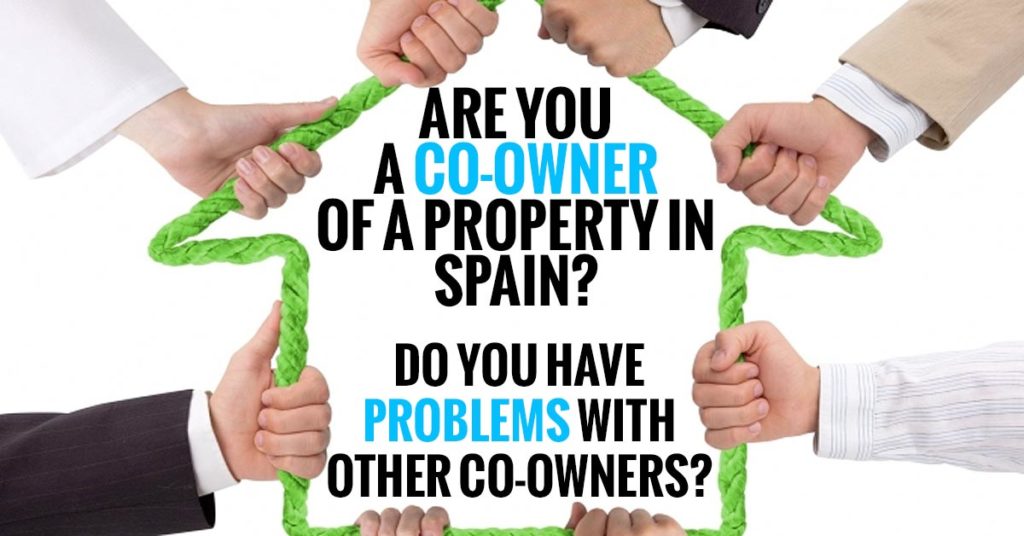We receive many enquiries from people who co-own property in Spain. This co-ownership can cause problems, such as when it is the result of an inheritance in which several heirs have inherited a property and they are not able to agree to sell it; or a house purchased with a former partner with whom there is no longer a good relation and who refuses to pay the mortgage payments / property maintenance; or the purchase of a property with a former job-partner or colleague with whom we no longer work etc.
The best thing to do in these cases is to try to reach an agreement, so a co-owner keeps the whole property compensating the others (buying them out), or if not possible, to sell the property to a third party and distribute the money between the co-owners.
Sometimes, whilst we may no longer wish to be co-owners of the property, it is not always possible to reach any agreement because the other owners refuse to sell or buy, refuse to pay and fulfill their obligations, etc. .
In these cases, you should know that the Article 400 of the Spanish Civil Code, provides what is the base of the legal action known as the action of division of the common asset, declaring that a co-owner could not be obliged to remain in the community. Any of the co-owners could apply at any time, for the common good to be divided.
Therefore, if it is impossible to agree with the other co-owners, you could ask the court for the division of the common good (the property), and if the property cannot be divided and distributed among the owners, because it is indivisible, the property will be normally sold at a court public auction.
This solution is not ideal, as this is a legal procedure which terminates with a public auction, where the price that would be obtained for the property would normally be lower than the market price. Unfortunately, sometimes it is the only alternative.
If you are in this situation, it is very advisable to get evidence that you have tried to reach an agreement, and if it is not possible, it is really important to be the first to start the legal proceedings for the division of the common good in the court, before the rest of the co-owners, because, if you are the respondent, you could be asked by the court to pay the legal costs of the court proceedings, which in these cases are usually high.
Therefore, if you are in this situation and you do not want to remain co-owner with others of a property in Spain, Contact Us.
The information provided in this article is not intended to be legal advice, but merely conveys general information related to legal issues.
Carlos Baos (Lawyer)
Spanish Law firm solicitor attorney barrister.
Alicante, Denia, Costa Blanca Marina Alta
White & Baos 2015 – All rights reserved
